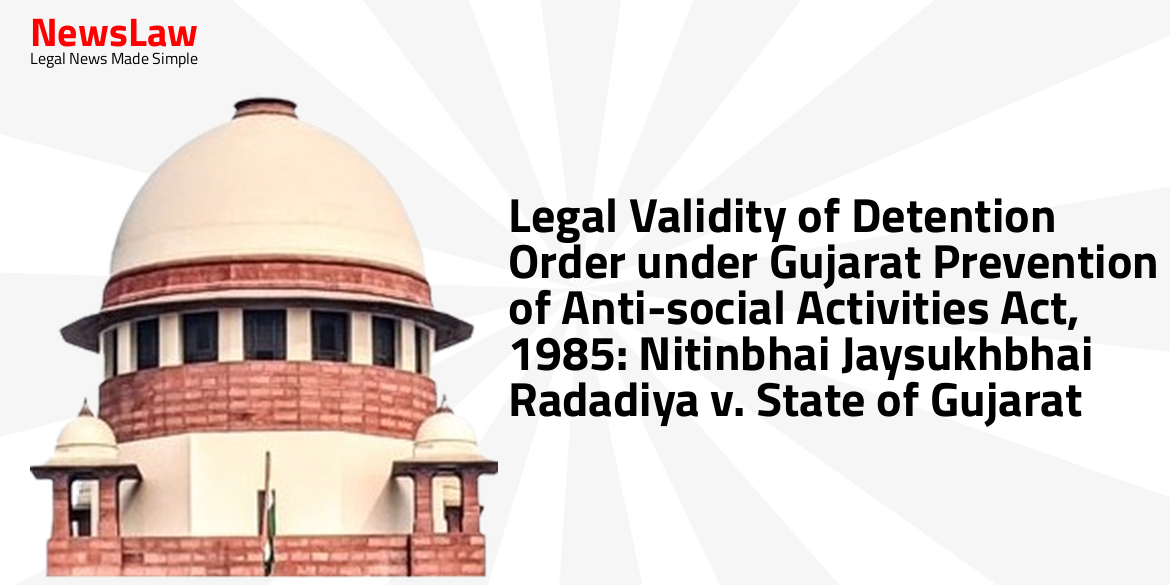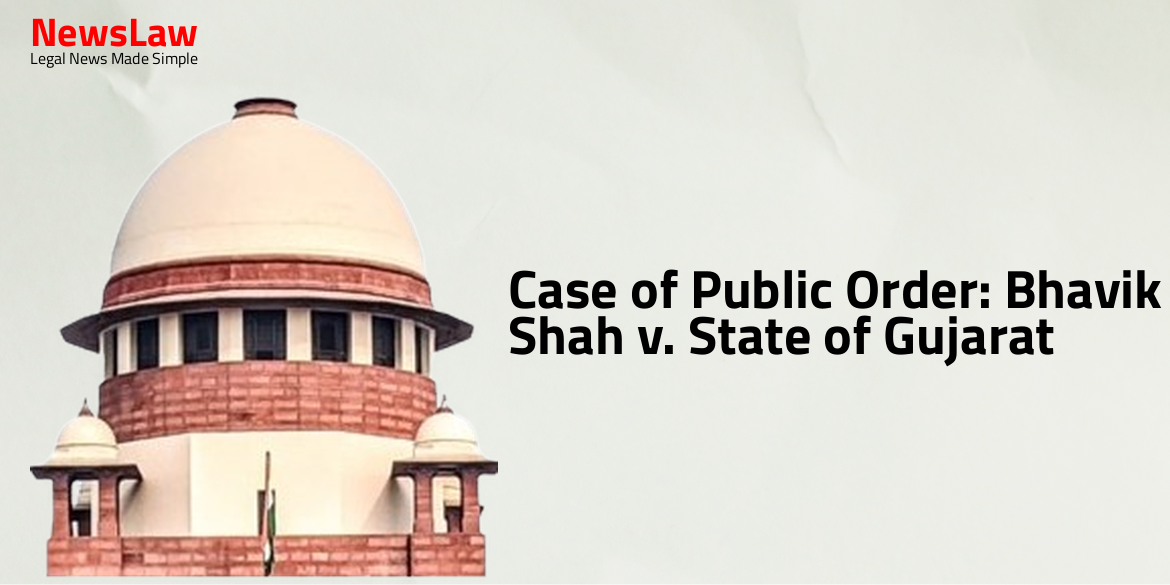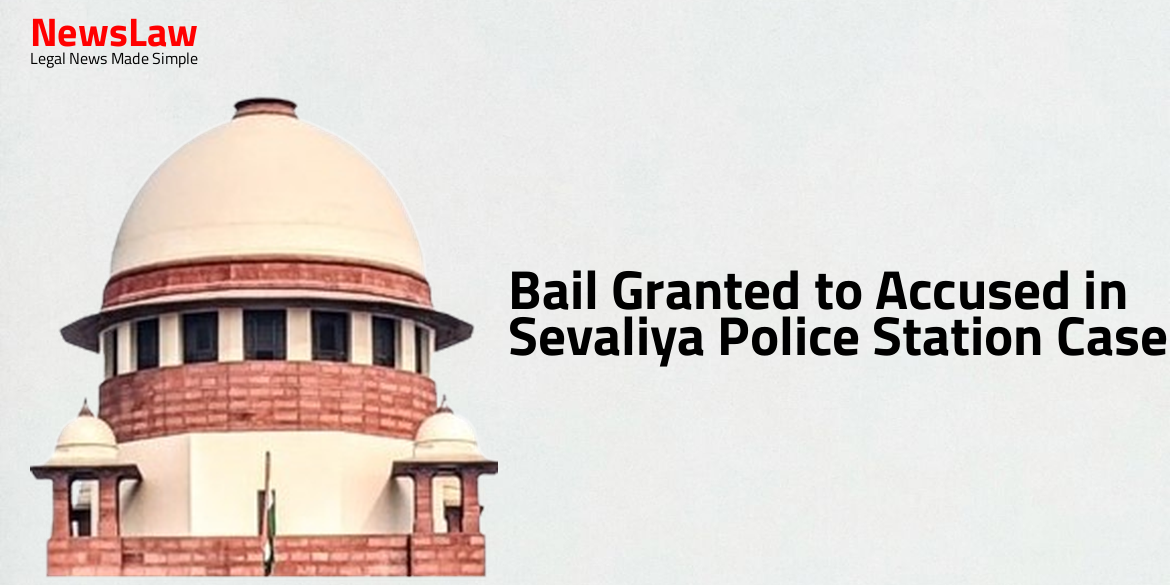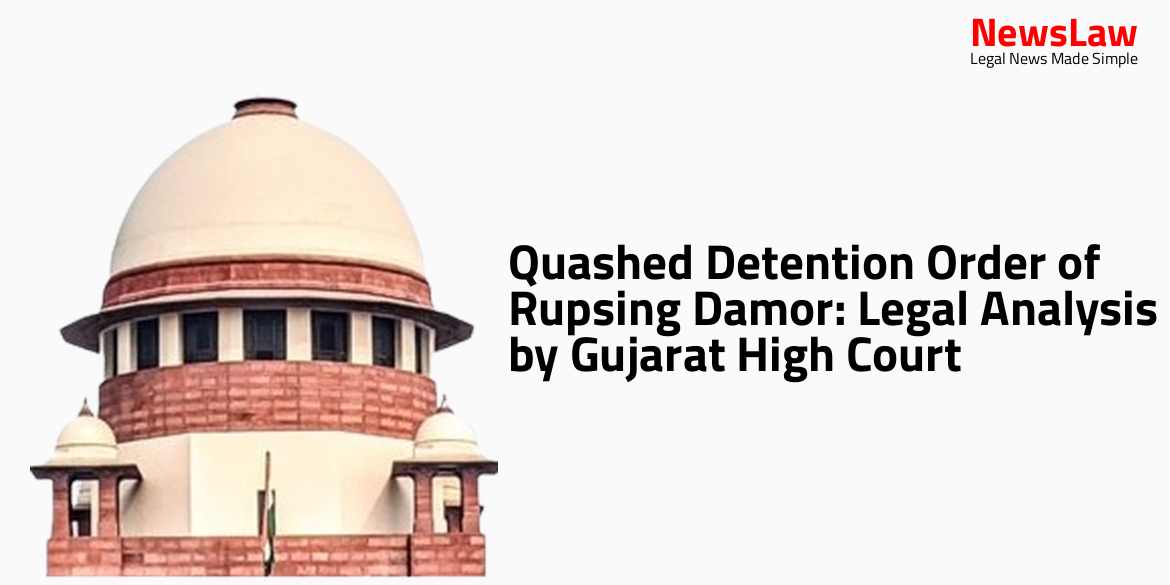In a significant ruling by the Gujarat High Court, the legality of a detention order under the Gujarat Prevention of Anti-social Activities Act, 1985 was challenged in the case of Nitinbhai Jaysukhbhai Radadiya v. State of Gujarat. The court delved into the nuanced difference between law and order versus public order, ultimately quashing the detention order. This judgment sheds light on the interpretation of the Constitution of India in such matters. #GujaratHighCourt #LegalValidity #DetentionOrder
Facts
- The petitioner, Nitinbhai Jaysukhbhai Radadiya, was preventively detained under the Gujarat Prevention of Anti-social Activities Act, 1985.
- The detention order was passed by the Police Commissioner of Surat on 17.01.2024 based on the petitioner being categorized as a ‘dangerous person’ under Section 2(c) of the Act.
- The petitioner, through his counsel Mr. Dakshesh Radadiya, has challenged the legality and validity of the detention order.
- The petition was heard by the Court with arguments presented by Mr. Dakshesh Radadiya for the petitioner and Mr. Hardik Mehta, learned AGP for the State.
Issue
- The issue at hand is whether the order of detention passed by the Detaining Authority under the Act of 1985 is legally valid.
- The court will assess the sustainability of the order based on relevant legal provisions.
- The interpretation of the Constitution of India and any orders made thereunder will be crucial in determining the legality of the detention order.
Arguments
- Advocate for the detenue argues that the grounds of detention do not relate to public order but are only about law and order.
- Detenue’s alleged offences do not impact public order, but are only a concern for law and order.
- Detenue’s activities are said to be prejudicial to law and order, not public order.
- State Counsel argues that detenue is a habitual offender and his actions affect society as a whole.
- Detaining Authority issued the order to prevent detenue from acting in a way prejudicial to public order in Surat.
Analysis
- The grounds of detention mentioned two criminal cases against the applicant under Section 379 of the IPC, but he was granted bail in both cases.
- The authority incorrectly concluded that the applicant’s activities were prejudicial to public order based on these cases.
- The detaining authority failed to show how the alleged anti-social activities of the applicant affect public order.
- The order for preventive detention was executed on the applicant, who is currently in jail.
- Although there were incidents of beating by the applicant as alleged by witnesses, they do not impact public order.
- The petitioner may be a bootlegger, but this alone does not warrant preventive detention unless it affects public order.
- The alleged offenses committed by the petitioner do not disrupt the even tempo of community life or its public order.
- The offenses do not have any direct bearing on public order according to the analysis given.
- Acts of assault or injury to specific persons do not necessarily lead to public disorder.
- The distinction between ‘law and order’ and ‘public order’ is important.
- Mere disturbance of law and order is not sufficient for action under preventive detention laws, it must affect the community or public at large.
- Serious and aggravated forms of disorder directly affecting the community fall under ‘public order’.
- Relatively minor breaches of peace with local significance are not considered as affecting public order.
- Offences alleged against the petitioner in the order of detention were carefully considered.
- Allegations made by the witnesses were also taken into account.
- Offences or allegations did not create feelings of insecurity, panic, or terror among the public in the area.
- No adverse impact on the maintenance of public order was found.
- The detaining authority’s subjective satisfaction was not legally valid as the activities did not affect public order.
Decision
- The detenue is directed to be set at liberty if not required in any other case
- The order dated 17.01.2024 passed by the respondent authority is quashed
- Rule is made absolute accordingly
Case Title: NITINBHAI JAYSUKHBHAI RADADIYA Vs. STATE OF GUJARAT
Case Number: R/SCA/4871/2024



